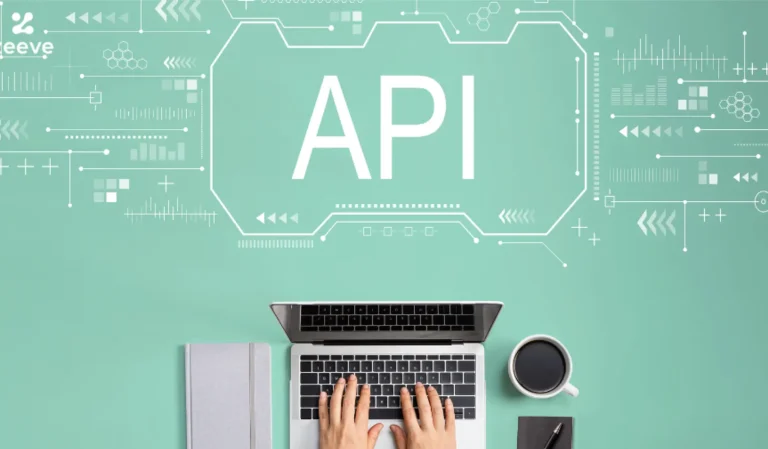Unleash the power of your WordPress content! Explore how the WordPress REST API bridges the gap, allowing you to create dynamic business mobile applications that leverage your existing website.
Content on the Go: Building Business Mobile Apps with the WordPress REST API
In today’s mobile-first world, businesses need a strong presence beyond their websites. Mobile applications provide a convenient and interactive way to engage with customers, showcase products and services, and deliver valuable information. But developing a mobile app can seem like a daunting task, especially for businesses already invested in a WordPress website.
The good news? The WordPress REST API offers a powerful solution. This blog delves into how the WordPress REST API empowers you to leverage your existing WordPress content and functionality to build robust business mobile applications.
Bridging the Gap: What is the WordPress REST API?
Imagine a bridge connecting your WordPress website to your mobile application. That’s essentially what the WordPress REST API does. It’s a built-in feature that allows mobile applications to communicate with your WordPress website using a standardized set of protocols.
Here’s how it works:
- The mobile app sends requests to your WordPress website via the REST API.
- The REST API retrieves the requested data from your WordPress database (posts, pages, images, etc.) and formats it in a way the mobile app understands (typically JSON).
- The mobile app receives the data and displays it within the application.
- This two-way communication enables mobile apps to access and utilize your WordPress content, creating a seamless integration between your website and your app.
Powering Your Business: Benefits of Using the REST API for Mobile Apps
Building a business mobile app with the WordPress REST API offers several advantages:
- Reduced Development Time and Cost: By leveraging your existing WordPress content and functionality, you can significantly reduce development time and costs compared to building a mobile app from scratch.
- Content Management Efficiency: Updates made to your WordPress website automatically reflect in your mobile app, ensuring content consistency across platforms.
- Scalability and Flexibility: The REST API allows you to integrate various functionalities like user logins, product catalogs, and push notifications into your mobile app, creating a richer user experience.
- Offline Access (Potential): While not a built-in feature, some mobile app development frameworks allow caching content for offline viewing, enhancing user experience even without an internet connection (further exploration required during development).
- Leverage Existing Content: Instead of recreating content within your app, you can seamlessly integrate your existing blog posts, articles, product descriptions, and other valuable content, saving time and resources.
By utilizing the REST API, you can create business mobile applications that are not only functional but also cost-effective and efficient to maintain.
Building Your Bridge: Steps to Get Started with the REST API
Ready to unlock the potential of the WordPress REST API for your business mobile app? Here’s a roadmap to get you started:
- Confirm REST API Availability: Ensure your WordPress website version supports the REST API (version 4.7 or later). If not, consider upgrading your WordPress installation.
- Choose a Mobile App Development Framework: Several mobile app development frameworks integrate seamlessly with the WordPress REST API. Popular options include React Native, Flutter, and Ionic, each offering its own set of advantages and learning curves. Consider factors like your development team’s experience and desired app functionality when selecting a framework.
- Explore Existing Plugins (Optional): The WordPress plugin repository offers various plugins that can simplify the process of integrating the REST API with your mobile app development. These plugins can provide functionalities like authentication, user management, and custom endpoints. Carefully evaluate available plugins to determine if they align with your specific needs.
- Secure Your API: Security is paramount when dealing with data exchange. Implement appropriate authentication and authorization mechanisms to ensure only authorized users can access your WordPress content through the REST API. Consider using plugins or custom code to enhance API security.
For a deeper dive into WordPress security best practices, check out our blog on “Fortress WordPress: Essential Security Measures to Protect Your Website”
Beyond the Basics: Advanced Considerations for Mobile App Development with REST API
While the core functionalities are straightforward, here are some additional considerations for building robust business mobile apps with the WordPress REST API:
- Offline Functionality (Continued): Explore caching mechanisms within your chosen mobile app development framework to enable users to access specific content (like blog posts or product information) even without an internet connection. Remember, extensive offline functionality might require additional development effort.
- Data Caching: Implement strategies to cache frequently accessed data on the mobile device to improve app performance and reduce reliance on constant API calls. This can enhance user experience by minimizing loading times.
- Error Handling and User Feedback: Develop robust error handling mechanisms within your mobile app to gracefully handle situations where the API request fails. Provide informative feedback to users in case of connectivity issues or errors.
- Data Pagination: For large datasets (e.g., extensive product catalogs), implement pagination within your app to display data in manageable chunks. This prevents overwhelming users with massive amounts of information at once and improves loading times.
- Push Notifications (Optional): While not directly related to the REST API itself, consider integrating push notification functionalities into your mobile app to keep users engaged. This allows you to send timely updates, promotions, or personalized recommendations directly to their devices.
A Symphony of Content: Examples of Mobile App Integration with REST API
The possibilities for mobile app development with the WordPress REST API are vast. Here are a few examples to spark your imagination:
- E-commerce App: Integrate your product catalog, user accounts, and shopping cart functionalities with your WordPress website to create a seamless mobile shopping experience.
- News App: Develop a mobile app that displays your latest blog posts, articles, and news updates directly from your WordPress website, keeping users informed on the go.
- Business Directory App: Showcase your business listings, contact information, and special offers through a mobile app that leverages your WordPress content management system.
- Membership App: Create a members-only mobile app that provides exclusive content, access to resources, and a community forum, all integrated with your WordPress website membership functionalities.
These are just a few examples, and the potential applications extend to various business models. With creativity and strategic planning, you can leverage the WordPress REST API to build a mobile app that enhances your customer engagement and fulfills your specific business goals.
The Road Ahead: Conclusion and Resources
The WordPress REST API offers a compelling solution for businesses seeking to bridge the gap between their website and mobile users. By effectively integrating your existing WordPress content and functionalities, you can create dynamic and cost-effective mobile applications that empower your business to thrive in today’s mobile-driven landscape.
Ready to embark on your mobile app development journey?
Here are some additional resources to equip you for success:
Popular Mobile App Development Frameworks:
Remember, a successful mobile app development project requires careful planning, a skilled development team, and a deep understanding of your target audience. The WordPress REST API provides a powerful tool to leverage your existing content, but its successful implementation hinges on your overall mobile app strategy.
So, unleash the potential of your WordPress website and explore the exciting world of mobile app development with the WordPress REST API!


